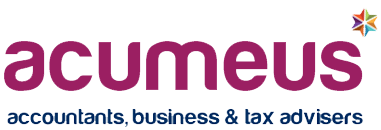Whether your business trades as a limited company, partnership or as a self-employed, understanding and utilising available tax relief options can significantly reduce your tax burden and boost your financial health. Tax relief means getting deductions and allowances from HM Revenue and Customs (HMRC) to lower your overall tax bill.
Here are some of the common tax relief options that dental associates can take advantage of to optimise their financial health.
Allowable Business Expenses
As a self-employed dentist, you can deduct various business-related expenses from your taxable income. These expenses must be incurred wholly and exclusively for the purposes of your business. Common allowable business expenses include:
- Dental Equipment and Supplies: Costs for dental instruments, sterilization equipment, and consumables like gloves and masks.
- Uniform Costs: Dental scrubs worn as a dentist are the only clothing items that are allowable for tax relief as they are considered “wholly and exclusively” for business use. Other items of clothing could be worn outside of work and therefore hold a personal element, which results in them being disallowable.
- Laundry Costs: Dentists are allowed to claim a flat rate fee of £125 per year for laundering their scrubs at home throughout the year.
- Office and Clinic Costs: Rent, utility bills, and maintenance expenses for your clinic or office.
- Professional Fees and Subscriptions: Membership fees for professional bodies such as the General Dental Council (GDC) or the British Dental Association (BDA) and other relevant subscriptions to medical journals and other relevant publications necessary for your work.
- Insurance: Professional indemnity insurance, public liability insurance, and other business-related insurance premiums.
- Legal and Professional Fees: Costs associated with legal and financial advice for your business are deductible, such as accountancy fees and legal fees for contracts, compliance etc.
- Staff Costs: Wages, National Insurance contributions, and pension contributions for your employees.
- Administrative Expenses: Costs such as postage, printing, stationery, telephone bills, bank charges etc.
Capital Allowances
When investing in new equipment or refurbishing your practice, you can claim capital allowances. This means you can deduct some or all of the value of these items from your profits before you pay tax. The Annual Investment Allowance (AIA) allows businesses to claim 100% of qualifying expenditure in the year of purchase, up to a certain limit.
Mileage and Travel Expenses
If you use your car for business purposes, you can claim mileage allowance or actual vehicle running costs. For mileage allowance, the rates are:
- 45p per mile for the first 10,000 miles
- 25p per mile thereafter
For actual running costs, you can claim for fuel, maintenance, insurance, and depreciation, but you must keep detailed records of business and personal use.
Travel expenses for business trips, including accommodation and subsistence, are also deductible. However, commuting between your home and main place of work is not allowable.
Use of Home As Office
If you use part of your home for business purposes (such as for administrative tasks), you can claim a portion of your home expenses. This can include:
- Mortgage interest or rent
- Utilities (electricity, heating, water)
- Council tax
- Internet and phone bills
To calculate the allowable amount, you can either use the simplified flat rate provided by HMRC or a proportionate method based on the area of your home used for business and the time spent working there.
Professional Development and Training
Continuous professional development (CPD) is crucial for maintaining your skills and staying updated with industry standards. Costs incurred for training courses, seminars, conferences, and additional qualifications that are directly related to your profession are tax-deductible. However, initial training costs to qualify as a dentist are not deductible.
Pension Contributions
Contributing to a pension scheme is a tax-efficient way to save for retirement. Contributions to registered pension schemes are deductible from your taxable income, providing immediate tax relief. For the 2024/25 tax year, the annual allowance is £60,000, although this can be lower if your income exceeds certain thresholds.
Research and Development (R&D) Tax Credits
If you are involved in innovative research or developing new dental treatments, you may qualify for R&D tax credits. This scheme allows you to claim back a proportion of your research costs, either as a reduction in your Corporation Tax bill or as a cash payment. To qualify, your work must meet HMRC’s definition of R&D, involving activities that seek to advance science or technology.
Incorporation and Profit Extraction
Some dental associates choose to incorporate their business (i.e. operate as a limited company rather than a sole trader or partnership). Operating as a limited company can provide more tax planning opportunities, including the flexibility to pay yourself through a combination of salary and dividends. Dividends are taxed at a lower rate than income, potentially reducing your overall tax liability. However, this is a complex decision and should be made with the advice of a tax professional.
Conclusion
Tax relief options for self-employed dentists in the UK are numerous and can significantly impact your net income if utilized correctly. Keeping detailed and accurate records, staying informed about changes in tax laws, and consulting with a professional accountant or tax advisor can help you maximize these benefits. By leveraging these tax reliefs, you can focus more on providing excellent dental care while ensuring your financial health is in check.
Are you a dental associate looking to maximise your tax benefits? Don’t miss out on potential tax relief options. Consult with our team today. Please click here to book a consultation.
Disclaimer: This blog is accurate as of the publication date and is intended for general informational purposes only. It does not constitute legal or professional advice. Please seek independent professional advice.

